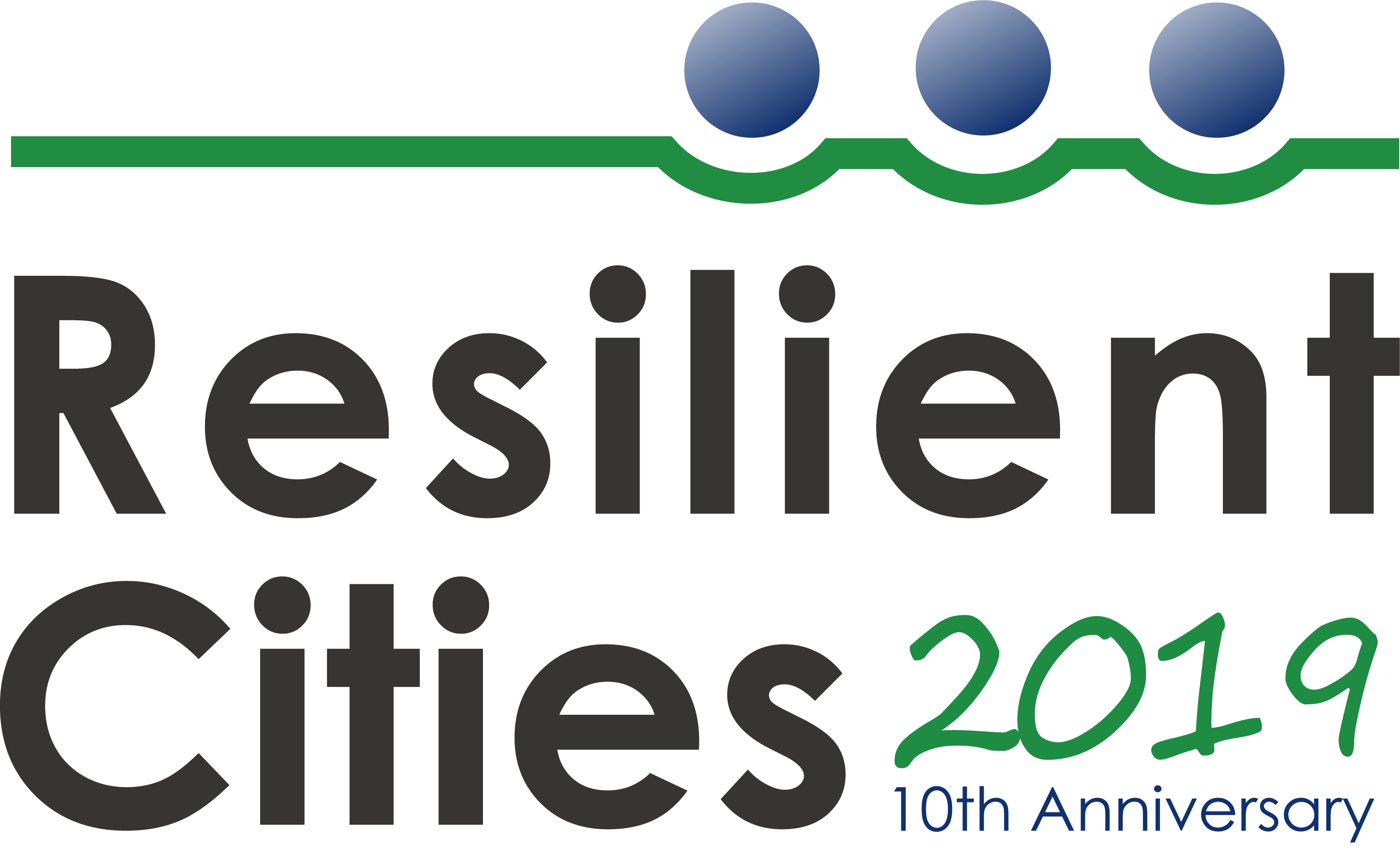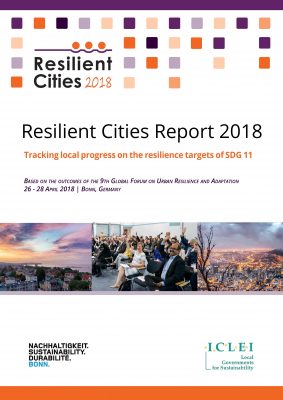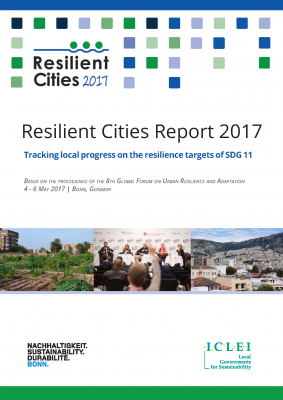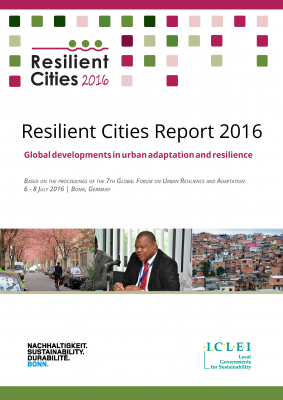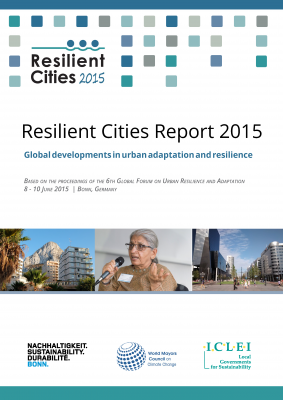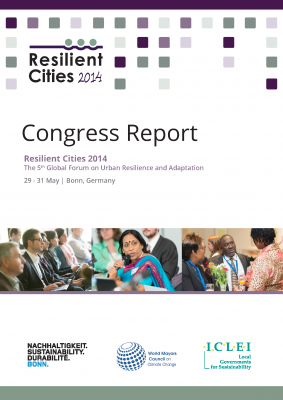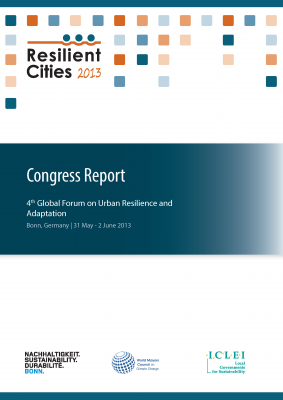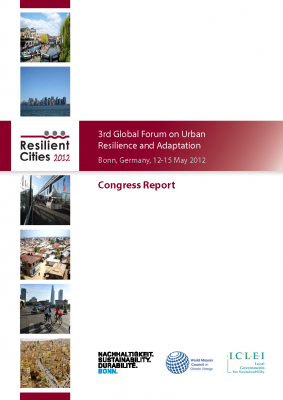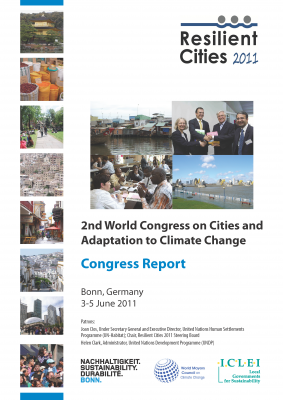Past congresses
Our legacy
For a decade, ICLEI Resilient Cities has been providing a global and open space where local governments, researches, businesses and civil society could meet as equals, contributing with their knowledge and expertise to the advancement of urban resilience. This is how we shaped the resilience debate:

The Past Global Forums
Resilient Cities 2018
Resilient Cities 2017
The 8th Global Forum on Urban Resilience and Adaptation featured more than 440 participants, 40 sessions and a number of side events, making the Congress an outstanding platform for learning, sharing ideas, and creating solutions. We were pleased to welcome participants from over 55 countries to Bonn.
To learn more about what happened at the congress:
- Find the pictures taken at the congress here: 4 May, 5 May, and 6 May
- Revisit the contents in our website and at the CityTalk Blog
- Watch our series of interviews in our YouTube channel
Resilient Cities 2016
Approximately 150 speakers, 34 sessions and a number of side events made the 7th Global Forum on Urban Resilience and Adaptation an outstanding platform for learning, sharing ideas, and creating solutions. We were pleased to welcome participants from 45 countries to Bonn, twenty percent from local governments.
To learn more about what happened at the congress:
- View the pictures taken at the congress here: 6 July, 7 July and 8 July.
- Read more at the Congress Blog and watch our video interviews.
- To view the Congress Summary PowerPoint from Robert Kehew, Leader, Climate Change Planning Unit, UN-HABITAT, click here.
- Check out the New EEA report, launched during Open European Day 2016, July 5, ‘Urban adaptation to climate change in Europe – Transforming cities in a changing climate’
Resilient Cities 2015
More than 420 participants, including approximately 170 speakers, convened in order to discuss urban resilience and adaptation in 39 sessions and a number of side events. We were pleased to welcome participants from 56 countries to Bonn, twenty-five percent from local governments.
To learn more about what happened at the congress:
- Read the daily highlights from Resilient Cities
Day 1, Day 2, and Day 3 - View the pictures taken at the congress here: 8 June, 9 June, 10 June.
- Read more at the Congress Blog and watch our video interviews.
Resilient Cities 2014
For the fifth time “Resilient Cities 2014 – Annual Global Forum on Urban Resilience and Adaptation” took place from 29 to 31 May 2014 in Bonn, Germany. The program of 2014 focused on a variety of key topics including risk data, adaptation planning, financing the resilient city, city-region food systems, and resilient infrastructure. With networking and side events, the congress offered the perfect opportunity to connect with resilience practitioners and researchers, to build new partnerships and exchange ideas and best practices.
Additionally, Resilient Cities 2014 hosted the 4th Mayors Adaptation Forum, which enabled close dialogue between local and global leaders. The 2014 forum focused on urban adaptation and biodiversity, climate governance, Sustainable Development Goals and the Post-2015 UN Development Agenda.
Finally, the congress was accompanied by various pre- and side-events, including the Open European Day, that took place on 28 May 2014. This special event focused on three core adaptation themes: Vulnerability and Risk Assessments, the Economics of Adaptation, Multilevel-governance Cooperation and Approaches.
Resilient Cities 2013
Resilient Cities 2013 featured over 40 sessions on urban resilience. In addition to a number of theme sessions, this year’s congress featured three forums:
- A special one-day forum on Resilient Urban Food Systems, composed of two plenaries, four sessions, and a coffee break event.
- The second Resilient Building and Construction Forum held in collaboration with the US Green Building Council on behalf of the World Green Building Council and Forest Stewardship Council.
- The third Mayors Adaptation Forum, hosted at the congress, was attended by several cities representatives who added their names to the Durban Adaptation Charter for Local Governments. The assembled municipal leaders concluded the forum with the 2013 Bonn Declaration of Mayors.
To learn more about what happened at the congress:
- Read the Congress Report, the Congress Proceedings and the Congress Program Booklet
- View the Congress presentations
- See the congress Blog for a detailed overview of each day of the event
- Check out the Photo gallery
Resilient Cities 2012
For the first time, in addition to a number of sessions, this Resilient Cities Congress presented two thematic forums on Resilient Urban Logistics (hosted by Deutsche Post DHL) and Urban Risk (hosted by UNISDR). Read the congress report to learn more about the forums and congress sessions.
To learn more about what happened at the congress:
- Read congress blog for a detailed overview of each day of the event
- Check out the photo gallery
- Watch video interviews conducted by our partner RTCC
Resilient Cities 2011
Financing was the key topic of Resilient Cities 2011 congress which kicked off with a launch of a white paper on “Financing the Resilient City“. The report identifies shortfalls in the global funding structures for adaptation, and sets out innovative ways to overcome them. Download here the 4 page summary.
For the second time congress hosted World Mayors Adaptation Forum. After two days of high-level meetings, 35 cities from all continents approved the 2011 Bonn Declaration of Mayors.
To learn more about what happened at the congress:
- Read the ICLEI Briefing Sheet “Resilient Cities 2011, Congress in brief”
- Watch video interviews conducted by Climate Change TV.
- Check out the photo gallery
- Hear what thought leaders said in Time for Real Questions, a series of dialogues with Konrad Otto-Zimmermann.
